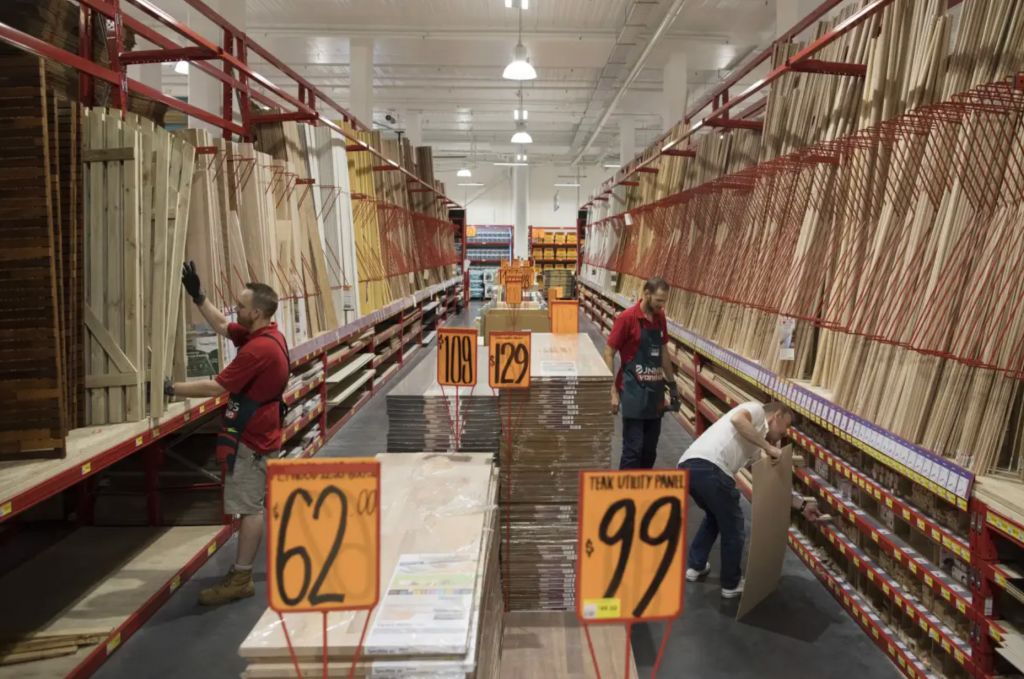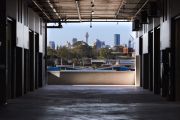
Ukraine war hits home supplies as Bunnings bans Russian timber
The invasion of Ukraine has dealt another blow to already-stretched global supply chains, with retailer Bunnings ordering suppliers to stop buying “conflict timber” from Russia in the wake of declarations earlier this month by global forestry bodies about timber from that country and ally Belarus.
Wesfarmers-owned Bunnings said Russia was not a major source of timber for the Australian home improvements market, but warned of a shortage to supply – on top of existing constraints – of composite laminated veneer lumber, or engineered wood products, in coming months.
“In line with our timber policy, which requires us to exclude source material under specific circumstances, we’re working with the industry to source suitable alternatives where necessary,” Bunnings director of merchandise Jen Tucker told The Australian Financial Review.
“We’re mindful that building material constraints are creating real challenges for builders and we’re doing everything we can to support the industry to work through this.”
But Australia’s building industry fears a bigger risk to its timber supply chain if the government imposes sanctions on Russian imports.
Surging timber and metal prices are already hitting the construction industry, with costs rise at the fastest pace in 16 years last year. Extreme demand due to programs such as HomeBuilder has been compounded by renovations and rebuilding demand after floods in Queensland and NSW.
The conflict timber declarations by Geneva-based Programme for the Endorsement of Forest Certification and Bonn-based Forest Stewardship Council affect buyers with strict procurement policies, whether a retailer such as Bunnings or a government.
Private buyers of timber are not required to use the same strict risk assessment processes. But sanctions – which foreign minster Marise Payne threatened in February – could halt all supplies.
While Russia only accounts for a small proportion of Australia’s timber imports – industry figures put the total last year at $80 million or just under 3 per cent of the total – it accounts for more than one-fifth of the country’s imports of laminated veneer lumber (LVL), composite material used for structural components such as lintels, I-Joists used in floors, and the formply used for the moulds that concrete is poured into for large commercial projects.
Russia is the largest exporter of lumber – wood processed into beams and planks – and the seventh-biggest exporter of forest products worldwide, with exports worth $US12.2 billion ($16.3 billion) last year.
The industry is concerned.
“There is a range of materials we do import from the region,” Housing Industry Association chief executive for policy Kristin Brookfield said.
“If the Australian government was to make any decision around sanctions of products – timber is one of those things – then Australia would have a pain point in terms of supply.”
In February, the Australian Timber Importers Federation industry group wrote to trade minister Dan Tehan warning of a 10-20 per cent loss of jobs across the supply chain if Russian timber imports were blocked. It has not yet received a reply.
“If there was a major interruption to Russian supplies of LVL and I-Joists, it is estimated that this will disrupt more than 60,000 detached housing starts,” ATIF Chairman Nils Koren said in the letter.
Disruption would come from both the loss of direct exports from Russia as well from shortages on the part of Europe-based suppliers and manufacturers who sold products to Australia made out of Russian timber, ATIF said.
Neither Ms Payne’s nor Mr Tehan’s offices had responded to request for comment by the time the Financial Review went to print.
Even without sanctions, Australian construction is already being affected.
One local manufacturing source said the loss of Russian raw material to global supply chains had – when shipping costs were included – triggered a tripling in price in March alone.
The conflict timber declaration is also affecting projects seeking Green Star certification.
“As the only recognised timber certification schemes in Green Star, PEFC and FSC have announced that Russian- and Belarus-sourced timbers are now declared conflict timbers and no longer eligible for their standards, this means that Green Star will not be recognising timber from those regions,” the Green Building Council of Australia chief executive Davina Rooney said.
Ms Rooney said, however, Green Star projects would not be significantly affected because Russian timber was generally not used in those projects for structural purposes. It was more likely to be used in internal finishes or cabinets, which gave suppliers time to shift their procurement, she said.











